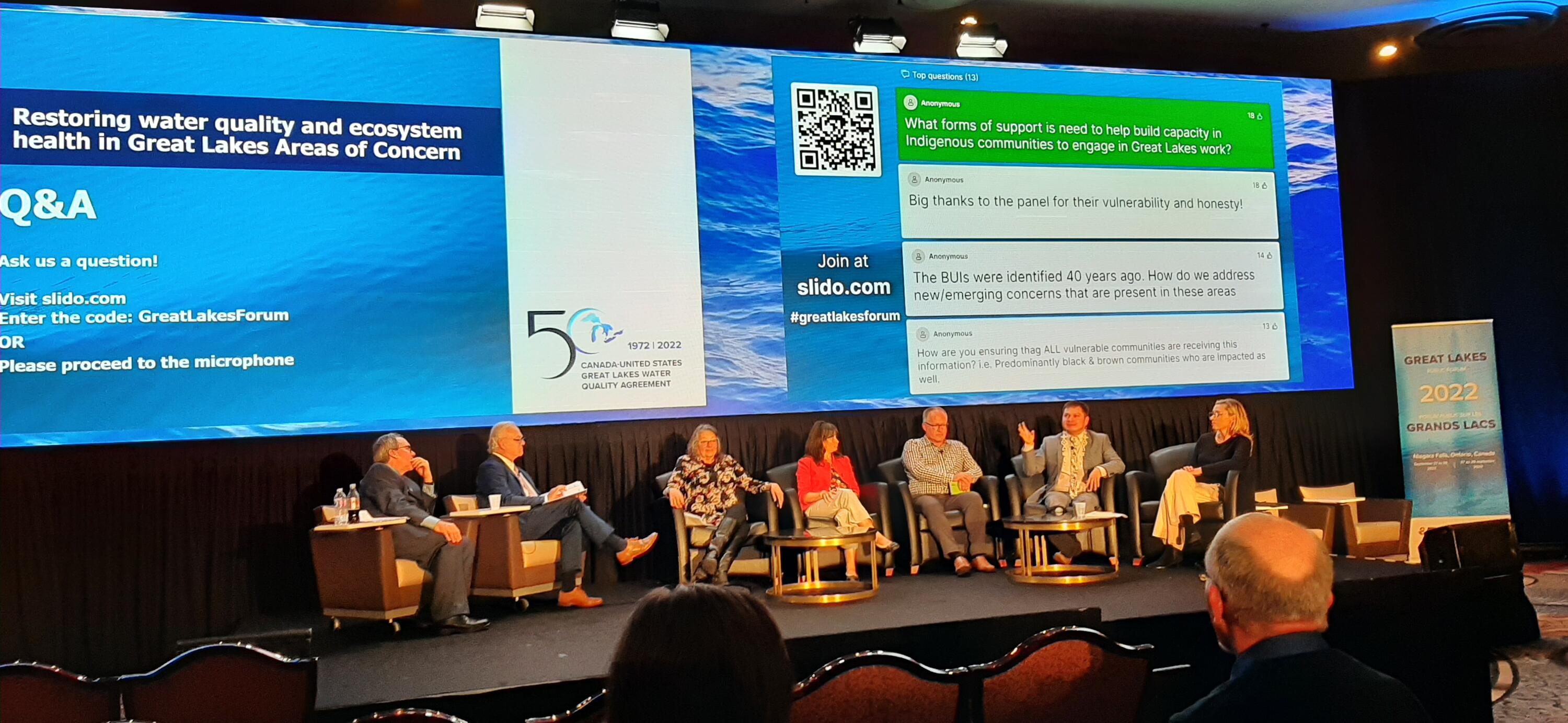Last week, from September 27 to 29, members of the Great Lakes community gathered in Niagara Falls, Ontario as part of the Great Lakes Public Forum. Hosted by the Government of Canada, this is an event that occurs every three years as mandated in the Great Lakes Water Quality Agreement. The event also marked the 50th anniversary of the signing of that agreement, and a major achievement in securing ongoing cooperation between Canada and the United States to improve the water quality of the binational Great Lakes.


(L) The Honourable Elizabeth Dowdeswell, Lieutenant Governor of Ontario (R) Restoring Water Quality Session at the Great Lakes Forum 2022.
The meeting involved hundreds of people who are passionate about the restoration and protection of the Great Lakes, including members of the public, civil society organizations, Indigenous communities, and government agencies. Sessions focused on important topics such as tackling algal blooms, addressing invasive species, increasing community engagement, and responding to the impacts of climate change.
The International Joint Commission also hosted a listening session during the Public Forum to seek feedback on the Canadian and U.S. federal governments’ progress towards achieving the objectives of the Great Lakes Water Quality Agreement. Nancy Goucher, representing the Water Institute, offered comments that emphasized the importance of leveraging the research capacity and expertise of secondary institutions, including the University of Waterloo, which has over 170 members working to understand challenges and opportunities for water management. She argued there is enormous potential to advance water innovation and technology through strengthened collaboration between university researchers and those present at the forum. Finally, she highlighted the need for governments to better support the career paths of new graduates. We need to find engaging opportunities for the passionate, highly proficient students who are eager to work on ways to protect Canadian water bodies.
Overall, the meeting made clear that there is a significant amount of work happening around the basin to address past deficiencies, respond to future threats, and create a roadmap for a more sustainable future.